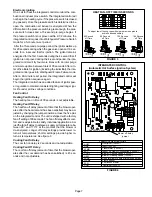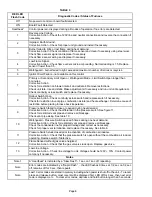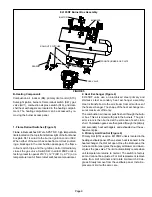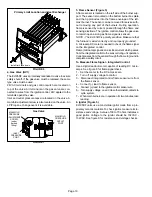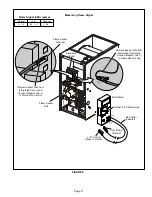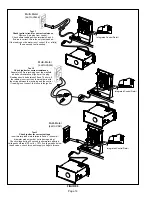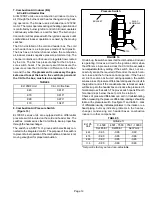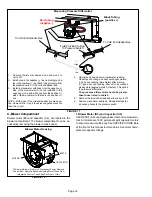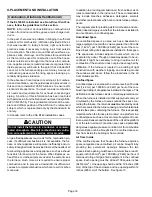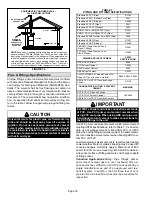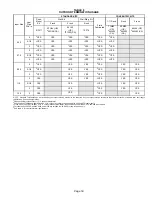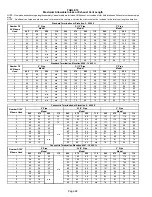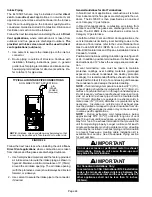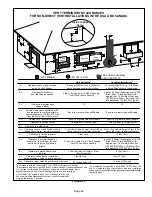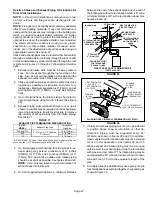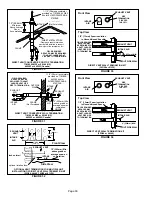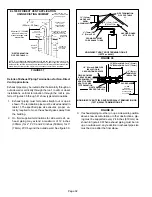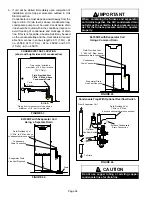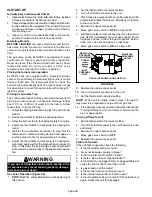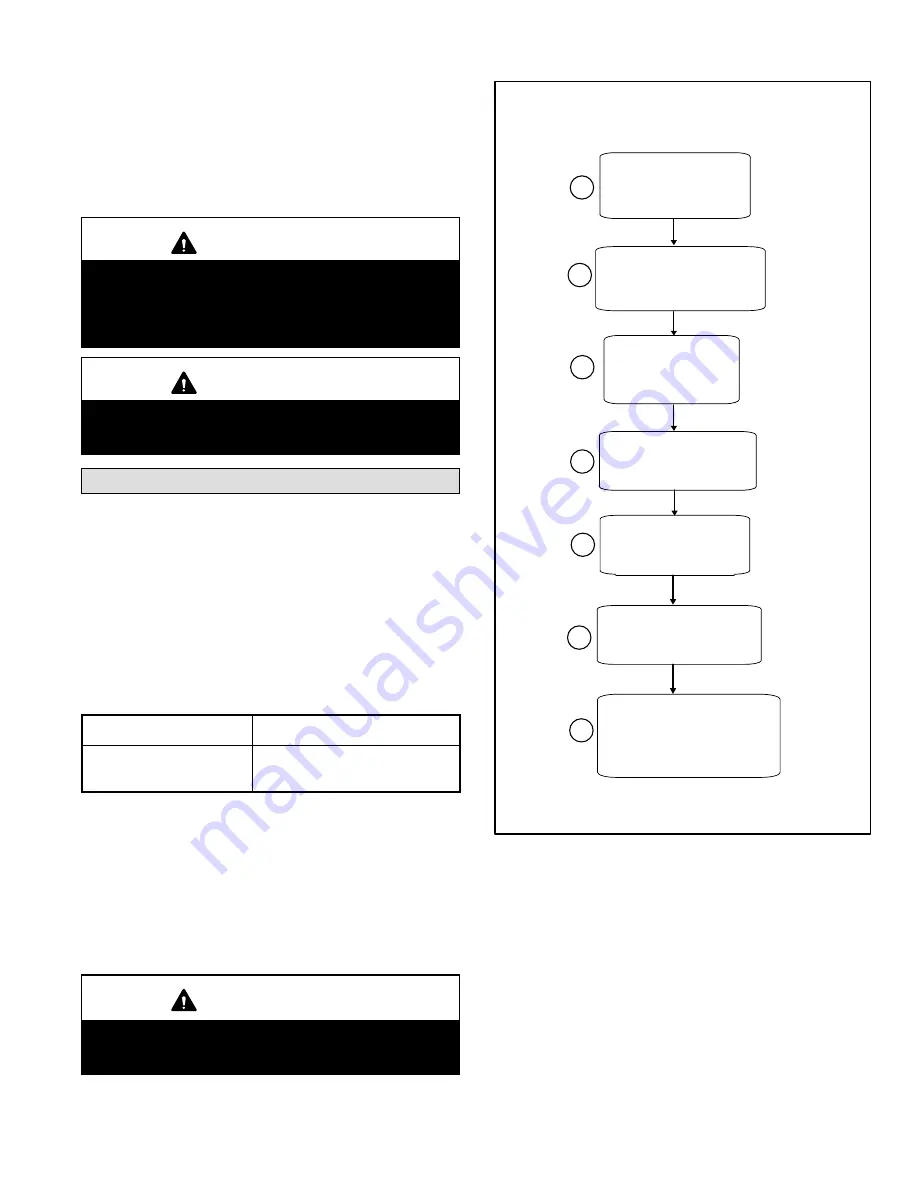
Page 21
3.
When furnace is installed in a residence where unit is
shut down for an extended period of time, such as a
vacation home, make provisions for draining conden-
sate collection trap and lines.
Exhaust Piping (Figures 20 and 21)
Route piping to outside of structure. Continue with installa-
tion following instructions given in piping termination sec-
tion.
CAUTION
Do not discharge exhaust into an existing stack or
stack that also serves another gas appliance. If verti-
cal discharge through an existing unused stack is re-
quired, insert PVC pipe inside the stack until the end
is even with the top or outlet end of the metal stack.
CAUTION
The exhaust vent pipe operates under positive pres-
sure and must be completely sealed to prevent leak-
age of combustion products into the living space.
Vent Piping Guidelines
The EL195DF can be installed as either a Non−Direct
Vent or a Direct Vent gas central furnace.
NOTE
− In Non-Direct Vent installations, combustion air is
taken from indoors and flue gases are discharged outdoors.
In Direct Vent installations, combustion air is taken from out-
doors and flue gases are discharged outdoors.
Intake and exhaust pipe sizing −−
Size pipe according to
tables 9 and 10. Count all elbows inside and outside the
home. Table 9 lists the
minimum
vent pipe lengths per-
mitted. Table 10 lists the
maximum
pipe lengths permitted.
TABLE 9
MINIMUM VENT PIPE LENGTHS
EL195DF
MODEL
MIN. VENT LENGTH*
045, 070, 090, 110
15 ft. or
5 ft plus 2 elbows or
10 ft plus 1 elbow
*Any approved termination may be added to the minimum length listed.
Regardless of the diameter of pipe used, the standard roof
and wall terminations described in section
Exhaust Piping
Terminations
should be used. Exhaust vent termination
pipe is sized to optimize the velocity of the exhaust gas as
it exits the termination. Refer to table 11.
In some applications which permit the use of several differ-
ent sizes of vent pipe, a combination vent pipe may be
used. Contact Lennox’ Application Department for assis-
tance in sizing vent pipe in these applications.
IMPORTANT
Do not use screens or perforated metal in exhaust or
intake terminations. Doing so will cause freeze−ups
and may block the terminations.
Use the following steps to correctly size vent pipe diameter.
FIGURE 19
Piping Size Process
1
2
3
4
5
6
Which style termination
being used?
Standard or concentric?
See table 8.
Which needs
most elbows?
Intake or
exhaust?
How many elbows?
Count all elbows inside
and outside house.
Desired pipe size?
2", 2−1/2", 3"
Use table 10 to find max
intake or exhaust pipe
length. Includes all vent
pipe and elbows inside
and outside the house.
What is the altitude of
the furnace installation?
7
What is the
furnace capacity?
045, 070, 090,
110 or 135?
NOTE
− It is acceptable to use any pipe size which fits within
the guidelines allowed in table 10.
NOTE
−
All horizontal runs of exhaust pipe must slope back
toward unit. A minimum of 1/4" (6mm) drop for each 12"
(305mm) of horizontal run is mandatory for drainage.
NOTE
− Exhaust pipe MUST be glued to furnace exhaust
fittings.
NOTE
− Exhaust piping should be checked carefully to
make sure there are no sags or low spots.

